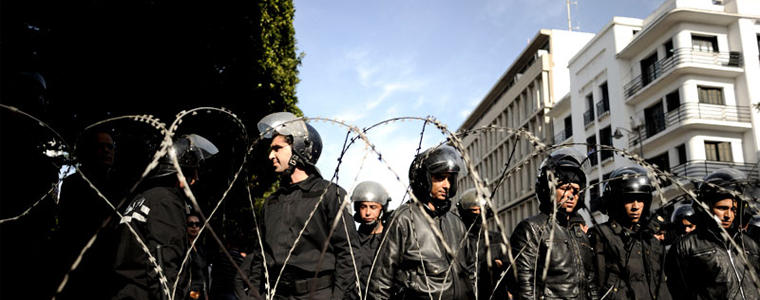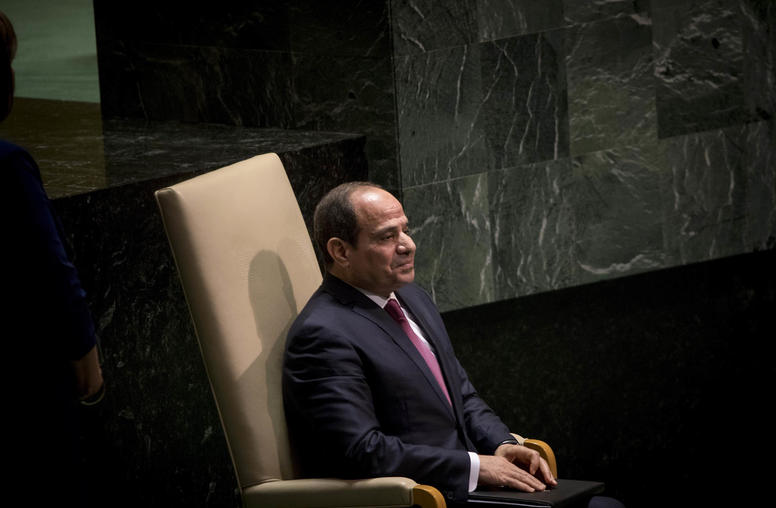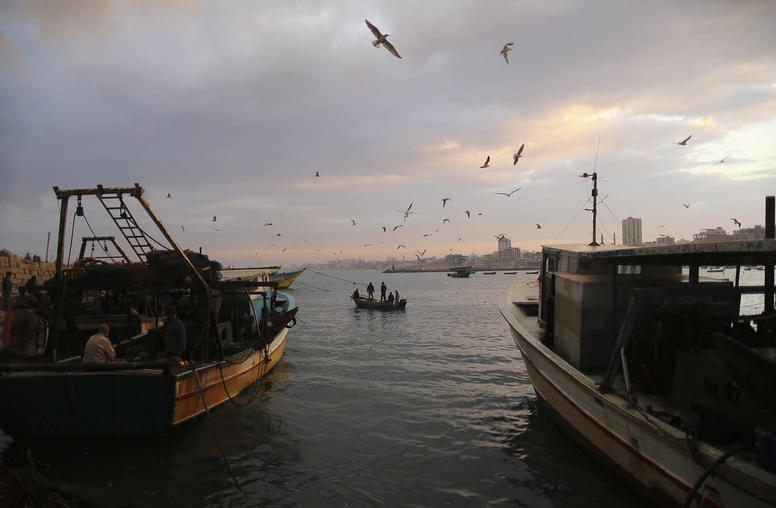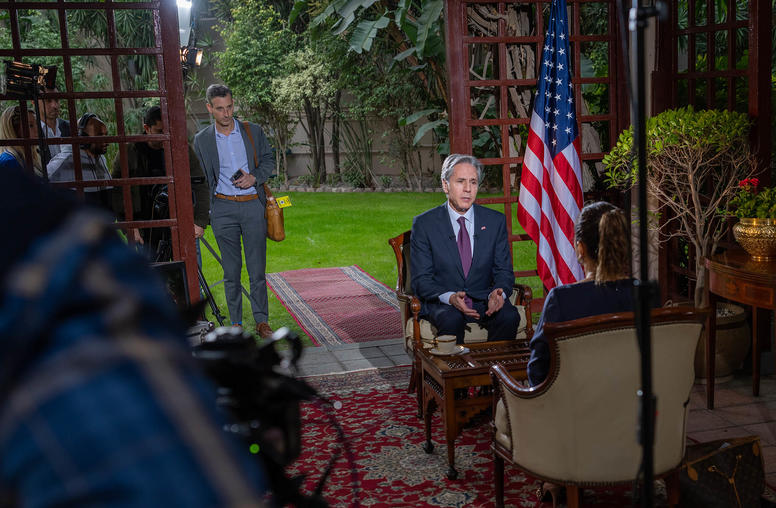In Tunisia, it is said, the unpopularity of particular ministries can be measured by the amount of barbed wire around their buildings. When I visited Tunis with my USIP colleagues, Bob Perito and Dan Brumberg, a year after the fall of Tunisian president Zine El Abidine Ben Ali, the Ministry of Interior (MOI) was still surrounded by concertina wire a few layers deep—more to protect those inside than to barricade the ministry.

In Tunisia, it is said, the unpopularity of particular ministries can be measured by the amount of barbed wire around their buildings. When I visited Tunis with my USIP colleagues, Bob Perito and Dan Brumberg, a year after the fall of Tunisian president Zine El Abidine Ben Ali, the Ministry of Interior (MOI) was still surrounded by concertina wire a few layers deep—more to protect those inside than to barricade the ministry. Army tanks also stood guard. The impression was of a ministry under siege.
Our reception at the Ministry of Defense (MOD) stood out in stark contrast. We were waived through the security checkpoint by a guard who snapped to attention and saluted smartly. Guards in formal dress uniform with immaculate spats welcomed us into the ministry. There was not a shred of barbed wire to be found. At the National Defense Institute, Tunisia's senior interagency education program, our welcome was equally warm (and equally barbed-wire free). Official photographers chronicled our arrival. Students and faculty talked openly of the many security sector challenges facing Tunisia during its transition. "We must own our past," noted a student. Rather than gloss over the abuses or wallow in the suffering of the many who ran afoul of the regime, students told us, it is vitally important that Tunisia continue to make progress.
My colleagues and I traveled to North Africa to assess the prospects for security reform. Our trip took us to Tunisia, Libya and Egypt—three critical states at various stages of transition following the Arab Spring revolutions. Each of our assessments will be published as USIP Special Reports. The release of the first report on Tunisia in March coincided with the announcement of an aid package of $100 million for Tunisia by the U.S. government in recognition of Tunisia's strategic importance. The security sector reform (SSR) assessments of Egypt, Libya and South Sudan will follow later in the spring.
These reports are part of USIP's broader engagement with the Arab Spring countries. USIP has been working on the ground in North Africa since early in the uprisings. In Libya, the Institute has conducted workshops on civil society, justice and security challenges, constitution making, and conlict management. The Institute's Academy for International Conflict Management and Peacebuilding is developing practitioner-focused seminars to enhance capacity building for SSR in critical regions like North Africa.
Tunisia's Remarkable Transition
It is easy to forget how remarkable Tunisia's transition has been. In the year since the revolution, Tunisia has achieved what no other Arab Spring country has managed: peaceful transition to democratic rule through national elections widely viewed to be free and fair. Everything looks remarkably normal. The traffic is still terrible. Cafes along the lovely tree-lined Avenue Bourguiba are packed—not with tourists, who have yet to return in large numbers—but with locals enjoying the mid-winter sunshine.
The legacy of the previous regime, however, remains: a complete lack of transparency, no real parliamentary or government oversight, and largely unchanged rules of engagement and training. Most in need of reform are the police and gendarmerie and the Ministry of Interior. Tunisia's internal security services are feared by the population and are themselves fearful of fulfilling their basic police tasks. During the revolution many police stations were burned, and in the interior of the country several policemen's homes were targeted. How the Ministry of Interior and its forces engage with citizens and with the executive and the legislature is also in need of reform. The raison d'être of Ben Ali's security institutions was to protect the regime, not the population. Security sector reform will be critical for building trust in the new government and its security institutions.
And yet there are positive indicators. The Tunisian Armed Forces clearly ascribe to the concept of civilian oversight of the military. Although they are currently fulfilling a number of internal security tasks, they have publicly stated their intention to return to the barracks when the police can resume full responsibility for internal security. Even now, police capacity is substantial. Senior officers are often highly educated, many officers have attended police academies in Europe, and education standards for entrance into the police force are high. In the Ministry of Justice, members of the corrupt coterie of judges, lawyers, and prosecutors Ben Ali relied on to fix sentences and protect the regime are beginning to be discharged. And the National Constituent Assembly, the only body in Tunisia with a clear mandate for reform, recently adopted bylaws to regulate the constitution-drafting process, including transparency rules. The assembly has also begun work on Tunisia's new constitution.
Civil society is another bright spot. Some 2,000 new civil society groups have emerged in Tunisia since the revolution. The barbed wire metric also registers process. Shortly after the one year anniversary of the revolution, the concertina wire surrounding the MOI disappeared.



